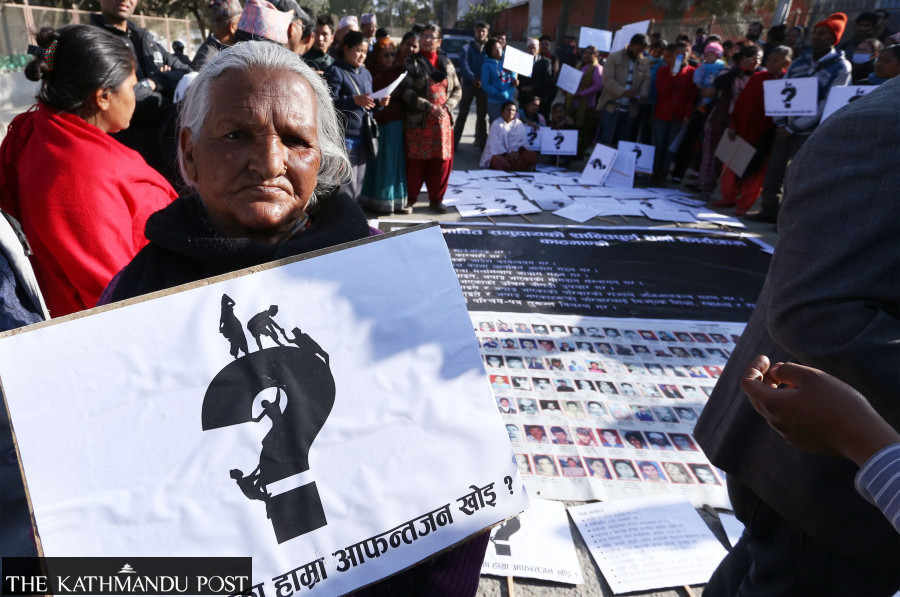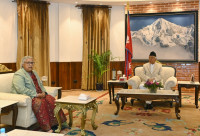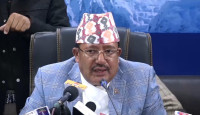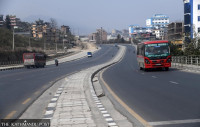National
Government brings controversial bill to withdraw cases sub judice in court
Experts say bill gives unrestrained discretionary power to the government to drop charges without court’s consent.
Binod Ghimire
Despite criticism from various quarters, the government on Sunday presented a bill in Parliament that allows it to withdraw sub judice cases.
The Bill to Amend Some Nepal Acts has a provision that says “cases sub judice in any court against anyone from a party or a group which conducted violent protests in the past but is carrying out its activities peacefully now, based on the constitution and the law, can be withdrawn”.
Through the bill, the government has added a sub-section to Section 116 of the Criminal Procedure Code which ultimately aims to withdraw cases from all tiers of the court—the Supreme Court, high courts and the district courts—against the political leaders.
Lawmakers from the Rastriya Swatantra Party, Rastriya Prajatantra Party and Nepal Majdoor Kisan Party criticised the bill, which aims to revise 79 different Acts, including the code. Earlier, they had also registered a proposal to reject the bill from being presented in the House. However, it was tabled after a majority of the lawmakers agreed to its presentation.
The opposition lawmakers are particularly critical of Clause 64 of the bill that aims to revise the code. “Clause 64 tries to politicise the judiciary and snatch the victims’ right to justice enshrined in the Constitution of Nepal. This is an encroachment of the duties, responsibilities and authority of the judiciary defined by the constitution and laws,” said Sumana Shrestha, a Swatantra Party lawmaker, who demanded that the bill should not be presented. “The bill aims to shield the political leaders and cadres who have committed heinous crimes.”
She, along with Sobita Gautam, another lawmaker from the party, Gyan Bahadur Shahi of the Rastriya Prajatantra Party and Prem Suwal of the Nepal Majdoor Kisan Party, had registered a notice, demanding the bill not be presented in the House.
While presenting the bill, law minister Dhanraj Gurung claimed that the provision was introduced to bring the political forces, who are in violent protests, into mainstream politics. “It doesn’t undermine the judiciary’s authority. Also, the bill could be revised through amendments, if necessary,” said Gurung. The lawmakers have 72 hours to register amendments to the bill.
If the bill passes the federal parliament and gets authenticated by the President, the government can withdraw all the cases against the leaders and cadres of the ruling CPN (Maoist Centre), the Madhesh-based parties and the CK Raut-led Janamat Party. While several Maoist Centre leaders have complaints against them in relation to the insurgency-era cases of human rights violations, the National Human Rights Commission (NHRC) also has directed the government to investigate the Janata Samajbadi Party chairman Upendra Yadav.
The incumbent government introduced the amendment bill after similar attempts by the erstwhile Sher Bahadur Deuba administration to revise the Criminal Procedure Code failed. The then President Bidya Devi Bhandari had refused to authenticate the amendment bill.
Constitutional experts say the provision contradicts the constitution. “This provision gives unrestrained discretionary power to the government to drop a criminal charge without the consent of the court concerned. It violates the right to equality and is therefore unconstitutional,” said Bipin Adhikari, a professor at the Kathmandu University School of Law.
The NHRC, the constitutional human rights watchdog, objected to the ordinance and had sought clarification from the prime minister’s office. It asked for clarification from the incumbent Pushpa Kamal Dahal administration as well. However, there has been no response. “The government has remained indifferent to our request for clarification and follow-up calls,” said Murari Kharel, secretary at the commission. “We are now thinking of summoning the home minister to clarify the government’s position.”
The commission has said the bill aims to influence the transitional justice process.
The Truth and Reconciliation Commission has received 63,718 complaints. Separately, 3,223 cases were lodged with the Enforced Disappearances Enquiry, Truth and Reconciliation Commission. However, the disappearance commission is conducting investigations into only 2,484 cases, saying the others do not fall under its jurisdiction.
“We object to the bill and stand against it,” said Surya Dhungel, a member of the commission. “We ask the government to refrain from presenting the bill that attacks the independence of the judiciary.”




 10.95°C Kathmandu
10.95°C Kathmandu















